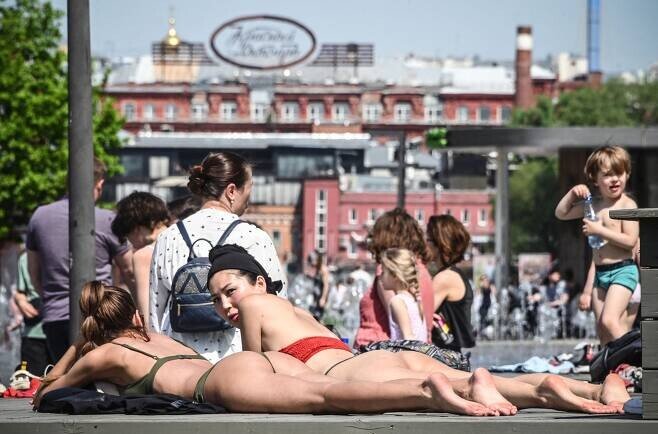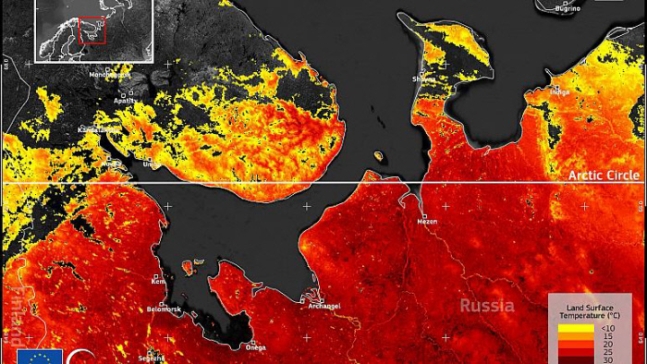


Moscow, which soared to 30 degrees Celsius, is not just a high temperature… In many parts of the city, the sunbathing scenery
The Kyunghyang Newspaper
The temperature in Moscow, the capital of Russia, soared more than 30 degrees Celsius, setting the highest record in more than 60 years. In recent years, Russia has seen alternating cold and unusually high temperatures, which are characteristics of climate change. In the sudden heat wave, there was also an unusual view of citizens enjoying tanning on the riverside and square of Moscow. People come out to the square to enjoy sunbathing as temperatures soar to 29 degrees Celsius in Moscow, Russia, on the 17th. AFP Yonhap News Agency on the 17th (local time), as temperatures soar to 29 degrees Celsius in Moscow, Russia, people come out to the square to enjoy sunbathing. According to local weather authorities on the 17th, AFP Yonhap News Agency, the temperature at some observation stations in Moscow rose to 30.5 degrees Celsius this afternoon. This is a new record of 27.1 degrees Celsius, set in May 1958 during the Soviet era. Moscow’s average temperature in May is around 13 degrees Celsius.
Moscow city authorities issued an orange warning, just below the highest red ‘warning’ among the five-grade weather hazards. An orange warning means that natural disasters are likely to occur due to the weather. Moscow’s temperature will rise to 30 to 32 degrees Celsius on Wednesday, according to weather officials.
Temperature is approaching 30 degrees in some areas near the Barentz Sea on May 13th. The European Commission’s weather experts say the heat is due to the high-temperature dry airbase moving from Central Asia to Moscow and the wide-established high pressure in western Siberia. “The current temperature is subtropical, which cannot be seen in Moscow’s latitudes, and has exceeded the higher temperature level in May,” Roman Vilpand, the head of Russia’s Meteorological Agency, told TASS. “It is too early to prejudge whether this high temperature was caused by climate change, but in recent years, extreme weather such as last winter and now Moscow have alternated,” EuroNews pointed out. In Siberia, which soared to 38 degrees Celsius last summer, the forest fire season began earlier than usual as warm and dry weather continued this spring. Water temperatures in the Barenz Sea, part of the Arctic Ocean between Russia’s northwest coast and Norway’s northern tip, rose to 27 degrees Celsius on the 13th.